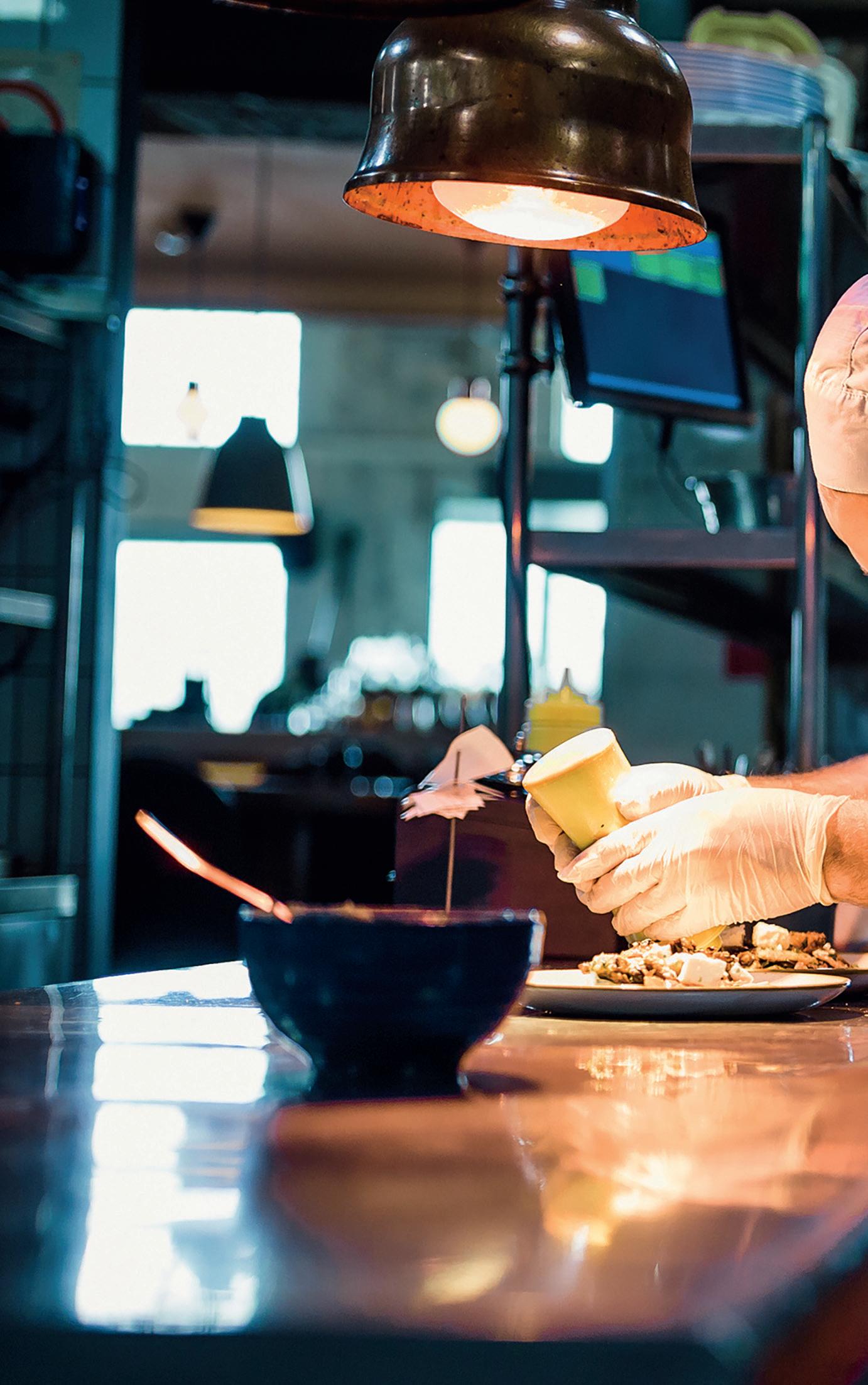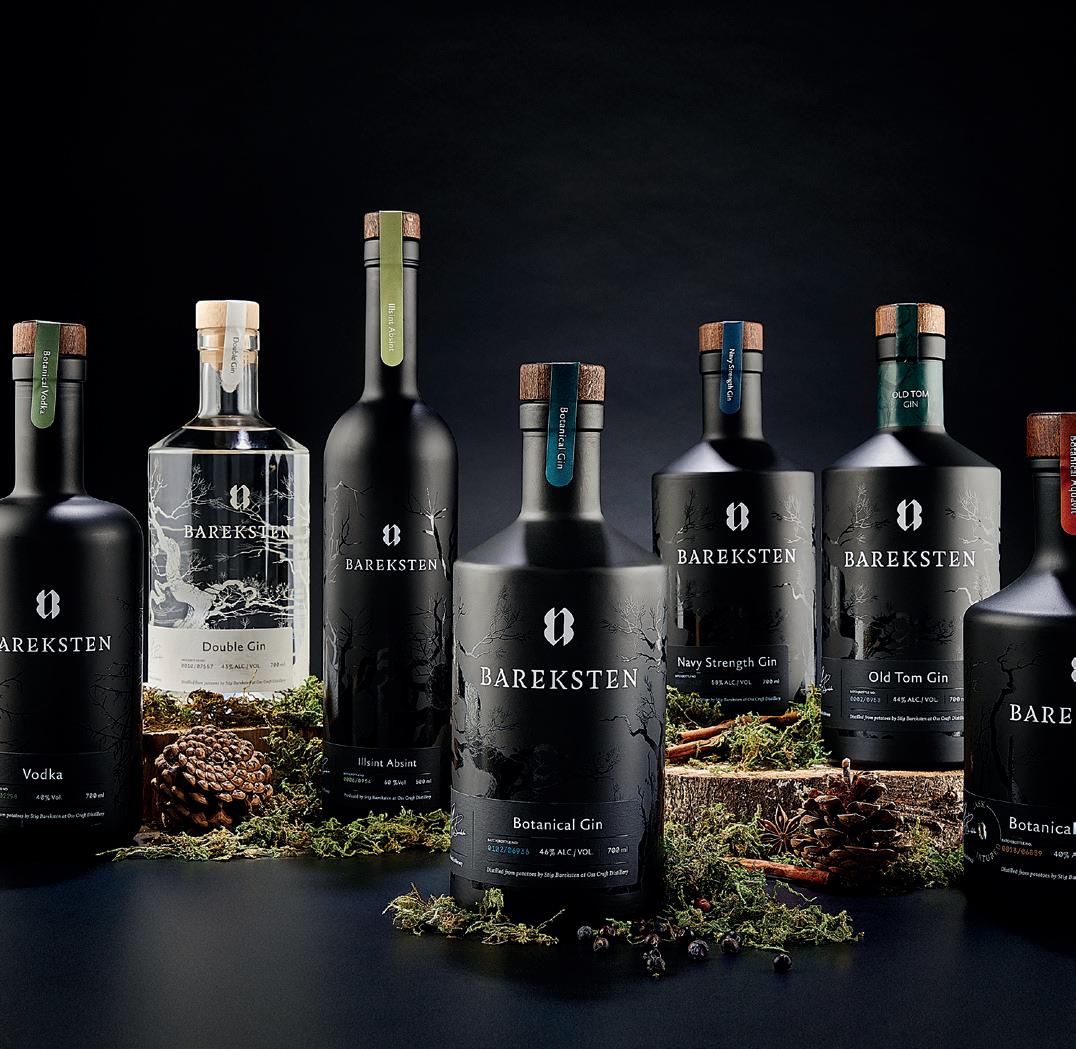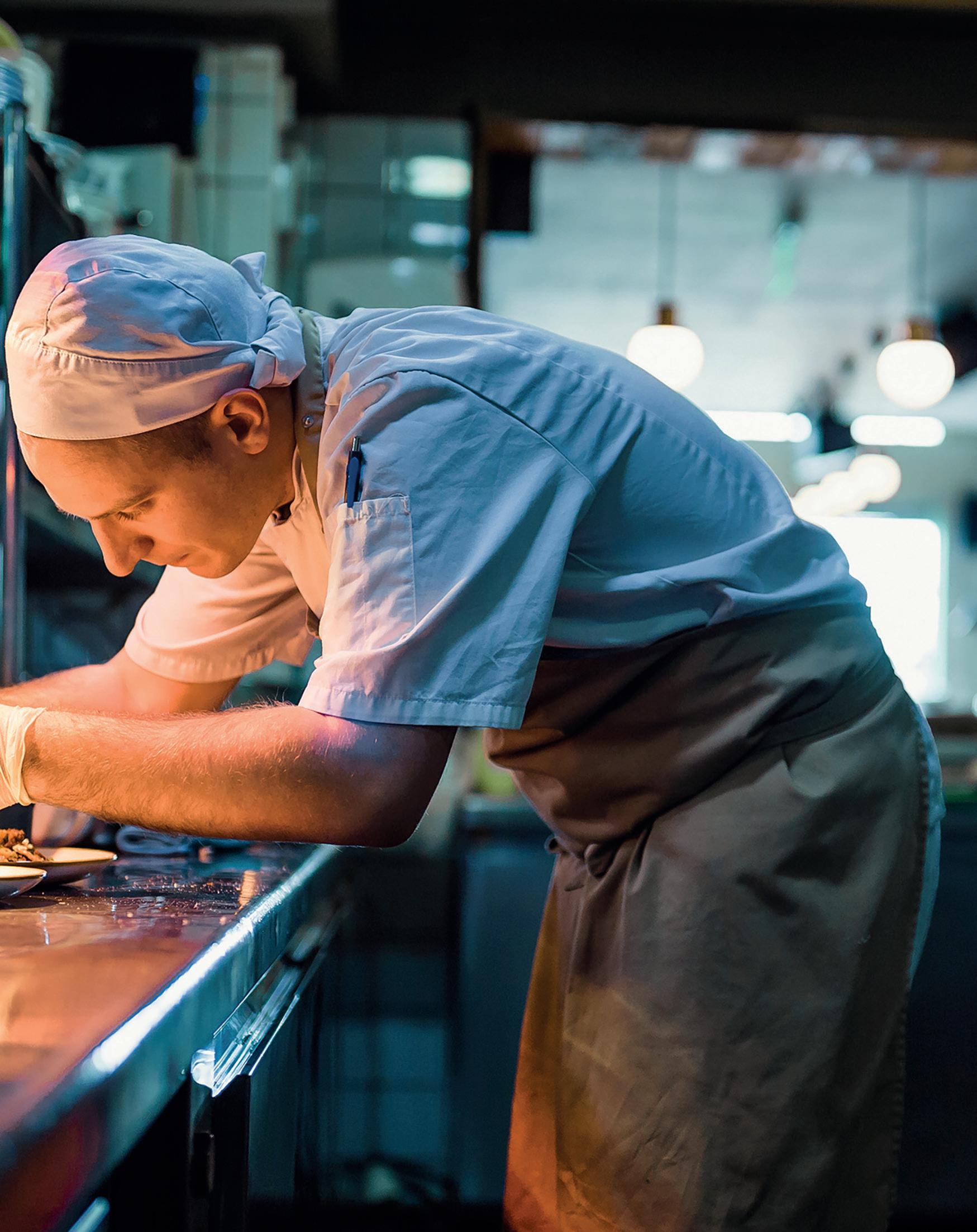
3 minute read
FOODSERVICE FOCUS
manager who, in many instances, is an ex-chef and knows the products well. “We also support hotels and restaurants in marketing and e-commerce functions, which enables ease of ordering and offers insight into quarterly food trends. This is on top of the access they get to our development chefs,” she says.
Chamberlain describes how rising food costs is a huge issue and, as a result, lots of establishments are rethinking their menus to increase revenue and profit.
She says: “Controlling costs has been crucial, but when refrigeration needs to be on 24 hours a day, this is a challenge.
“The whole industry has had to rethink how it operates and what needs to change in order to become a profitable, viable business once again.”
The issue of staff is one that has affected Savona Foodservice’s customers, according to group marketing manager Jenny Squire, who says: “Customers have had to adapt to rising food and energy costs due to inflation. There is a large shortage of hospitality workers, so customers have had to adapt how they operate. This could mean reducing their menu size, focusing on simplicity and consolidation of stock held and a reduction in offerings. Opening hours have also been effected –sometimes it is cheaper to not open than to open at all.”
She says this means keeping Savona’s product range manageable for any skillset – sourcing products that are cross-functional for the menu and can save on labour while not compromising on quality. As a result, the sales team offers as much support as possible with menu alternatives and solutions to adjust to labour shortages and rising costs. “We assist in looking into dosing systems and other cleaning solutions using a cost-in-use exercise. We also promote sustainable practices and products, and share how we work with our suppliers to work in an ethical, eco-friendly way.”
Meanwhile, Gary Williamson is the managing director of Confex member Williamson, a wholesaler with a customer base of 80% hotels and restaurants, in a purely transactional form. “I’ve seen a number of changes from our customers over the past 18 months, including an increased cost of operation, variable hours of business and huge labour-shortage challenges.
“On the product side, there has been more of a shift towards more ‘ready to go’ food; smaller, more concentrated menus,” he explains.
Products
Meanwhile, NPD has always been a vibrant area in this sector and continues to be. Norwegian spirits company Bareksten recently entered the UK foodservice wholesale market. “We are well placed to be the spirit of choice for premium UK hotels and restaurants after winning some of the most prestigious awards in the world,” a company spokesperson says.

“Aside from our Bareksten Botanical Gin being the most accoladed, our Navy Strength is the current overall winner of The London Spirits Competition in 2022 across all categories.”
Wholesalers Master of Malt, Speciality Drinks and Threshers are already stocking the range, and the gin forms part of Bareksten Spirits’ super-premium range of Norwegian craft spirits, comprising gins, absinth and aquavit.
Meanwhile, Charlotte Perkins, trade marketing manager at Pan'Artisan, explains how the
RESTAURANTS
475,000 company is always responding to emerging trends and customer feedback to enhance its dough range. “Consumers relate dining at hotels and restaurants with a greater sense of occasion, expecting high standards not only in the presentation of their surroundings and service, but also their food offering. For busy foodservice operators, pizza’s versatility can easily address specific dietary needs simply by offering a variety of toppings and appropriate pizza bases,” she says. challenging times, so reassurance in their product choice is important – our noodles present a reliable store cupboard staple with a long shelf life, suitable for many menu types, and if storage is no issue, buying in bulk can help keep costs down.
35,129
“Thankfully, the hospitality sector is showing signs of recovery as we come out of the last of the pandemic restrictions, yet the cost-of-living crisis presents a new set of challenges. Many operators may well be juggling dine-in service while retaining a delivery or take-out option as a consequence of the pandemic’s hit on income –caterers benefit from employing expertly produced, versatile bakery, like our products.”
Providing an interesting menu to attract custom is key, with dishes that are less likely to be prepared at home winning over curious gastronomes, is the view of Greta Strolyte, brand manager at Lucky Boat. She says: “Caterers across all sectors are navigating their way through
“Asian fusion cuisines are gaining favour and we have experienced wonderful product feedback from traditional and contemporary Asian food operators throughout the UK. Our customers love our noodle range for their superior taste and premium quality, which delivers excellent noodle separation and minimal breakage, the perfect portion-size nests are ideal for waste control, and the fact that they are made in the UK is a big draw. Noodles are a versatile option that offer instantaneous appeal, and can be speedily prepared for an affordable street-food-style menu choice. Lucky Boat’s noodle range is suitable for vegans and vegetarians, too, allowing operators to offer an inclusive menu across diet types,” Strolyte adds.
So, despite tough marketing conditions and a customer base with evolving needs, hotels and restaurants offer thriving industries for wholesalers if they’re selective in how they navigate the two challenging terrains. l











